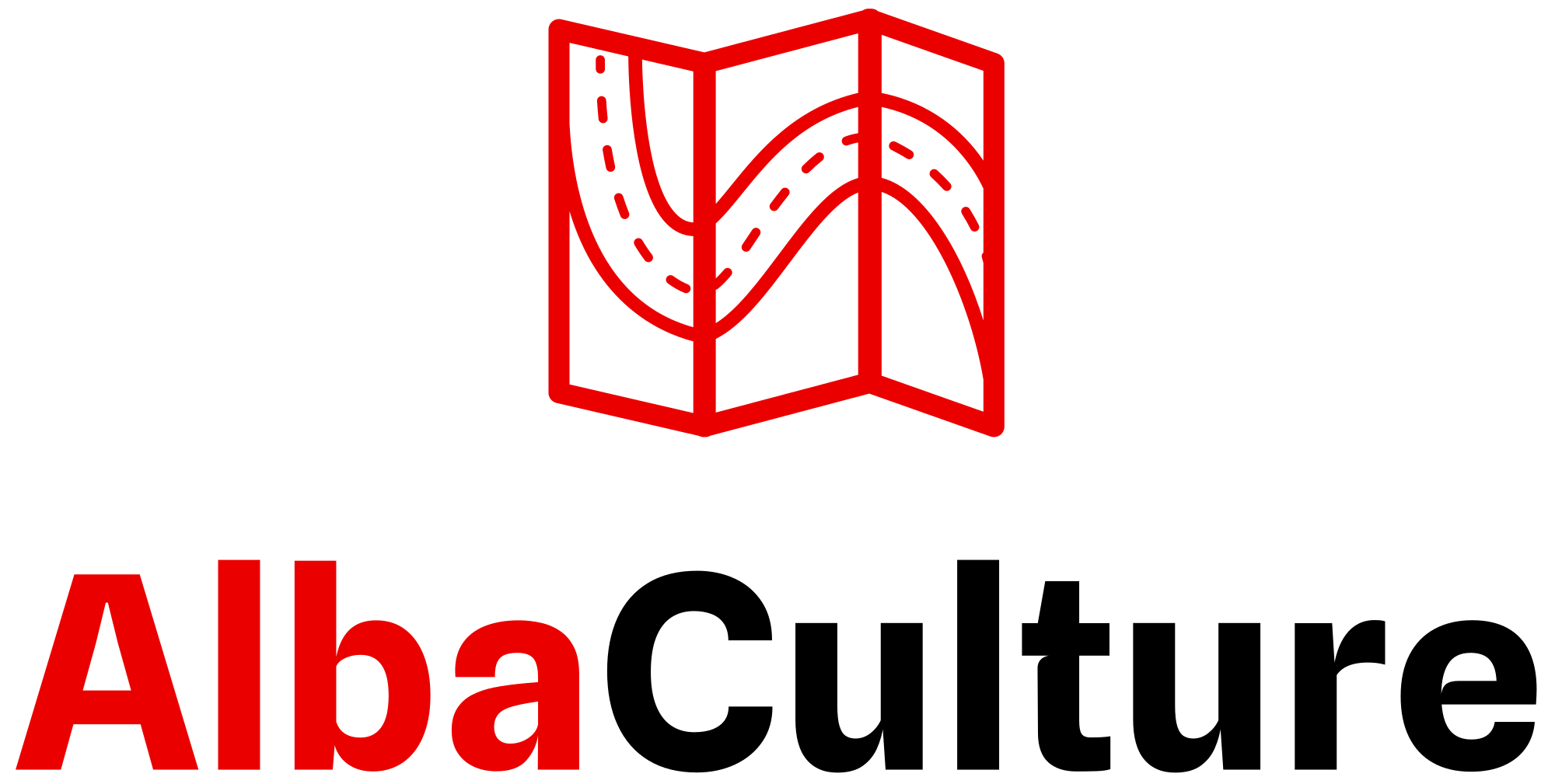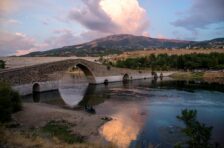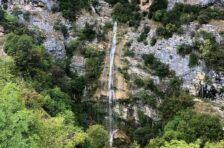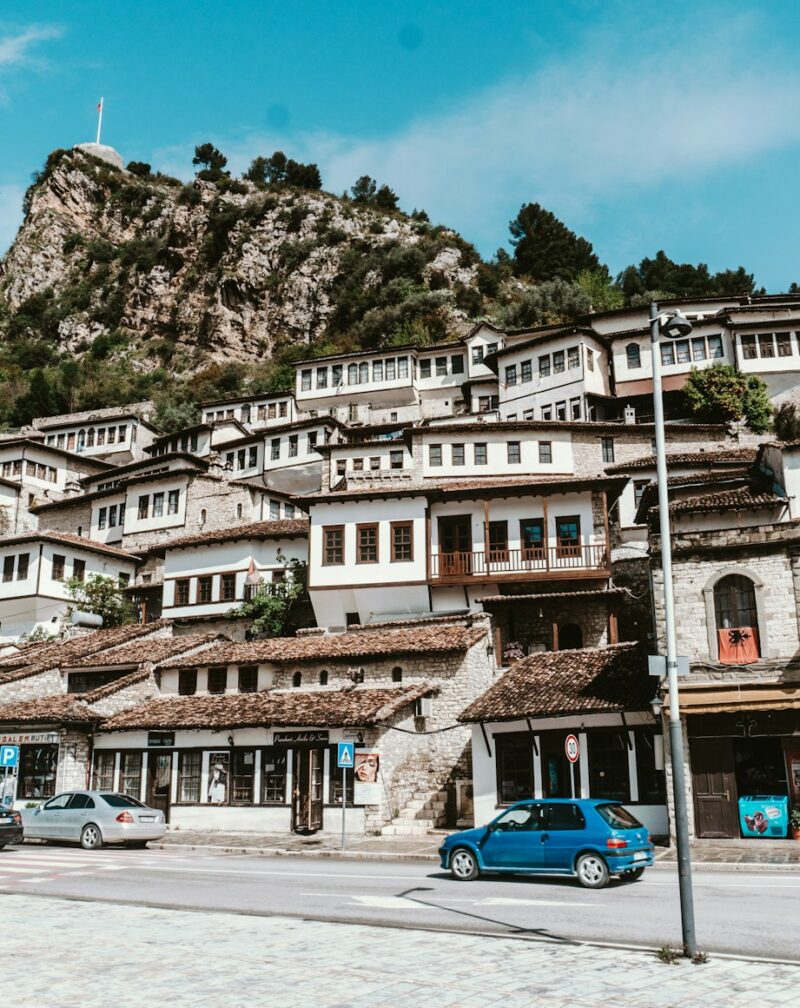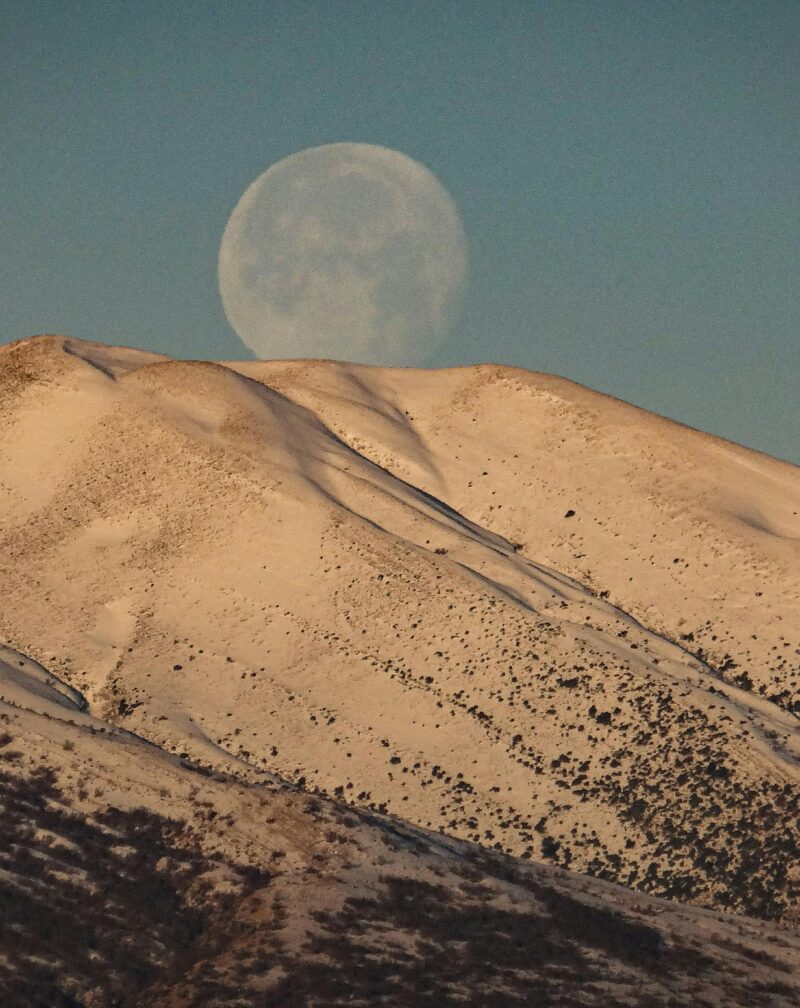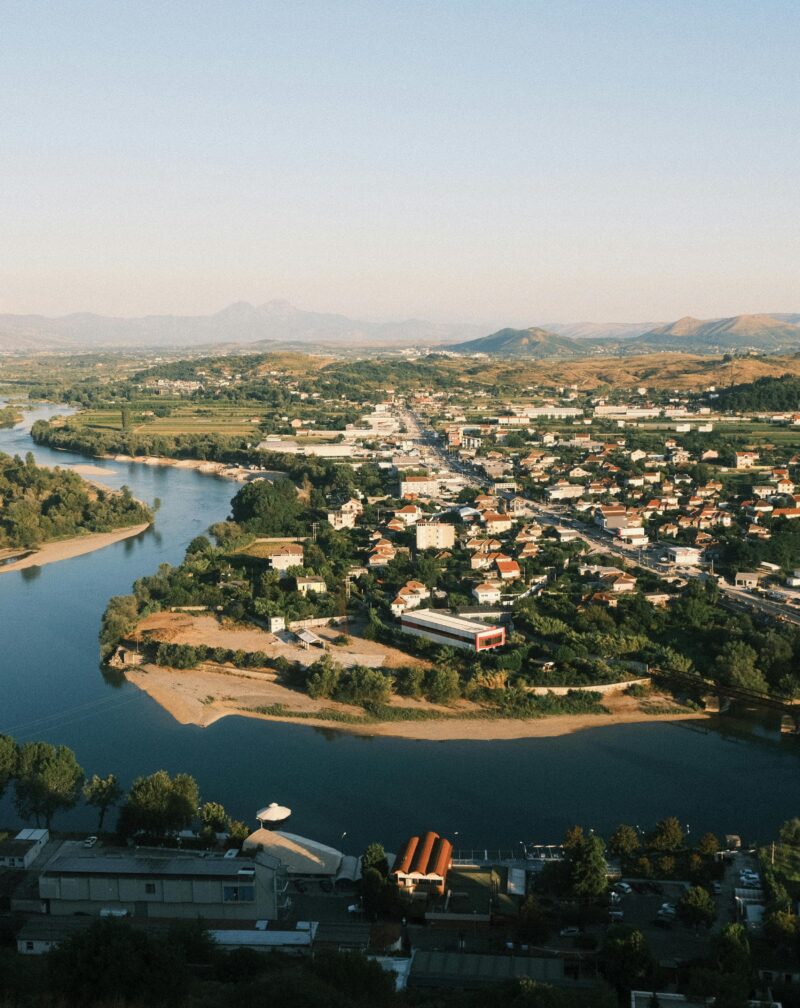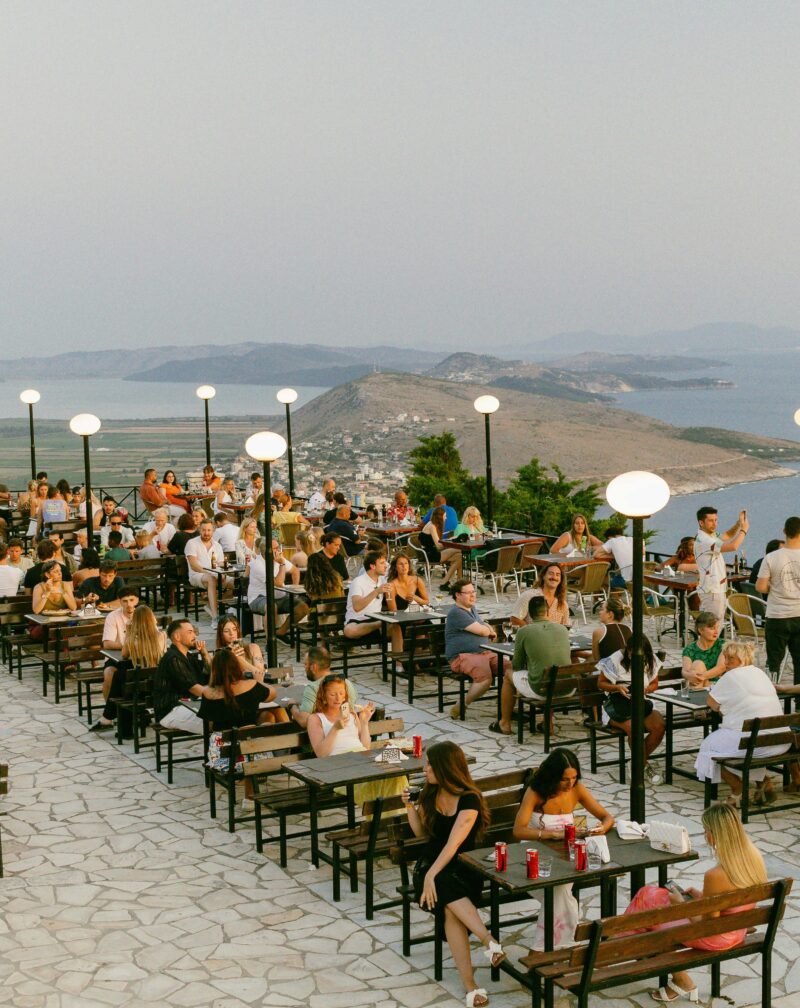Understanding Albanian Social Life
Albania has its own distinct culture that doesn’t quite match the Mediterranean stereotype or the Balkan generalization. Some things feel familiar if you’ve traveled nearby, other aspects are uniquely Albanian.
Hospitality (Mikpritja)
This is perhaps the defining characteristic of Albanian culture. Hospitality toward guests is taken extremely seriously, almost as a moral obligation. If an Albanian invites you to their home, they will go to remarkable lengths to make you comfortable and offer food, drink, and conversation.
Refusing hospitality can cause offense. If someone offers coffee, trying to decline might result in them insisting three or four times. Accept at least something, even if you’re not particularly thirsty. The ritual of offering and accepting is more important than whether you actually want coffee.
This hospitality extends to strangers. If you’re visibly lost, people will stop to help. If you show interest in something, they’ll explain enthusiastically. Some travelers find this warmth overwhelming, others love it.
Family Structure
Albanian society is family-oriented, traditional in some ways. Extended families often live close together or in the same house across generations. Family loyalty is paramount.
Older people command respect. You’ll notice younger Albanians treating elders deferentially. If you’re meeting an Albanian family, showing respect to grandparents or parents is appreciated.
Gender roles remain more traditional than in Western Europe, particularly in rural areas. Women often handle domestic responsibilities while men work outside the home, though this is changing rapidly, especially among educated urbanites.
Religion and Coexistence
Albania’s population is majority Muslim (Sunni and Bektashi), with significant Catholic and Orthodox Christian minorities. The communist regime brutally suppressed religion, declaring Albania the world’s first atheist state in 1967.
Post-communism, religion returned but often without the intensity seen in neighboring countries. Many Albanians are nominally religious but not particularly observant. You’ll see mosques and churches, but Albania feels more secular than Bosnia or Greece.
The unique aspect is religious harmony. Interfaith marriages are common. Families sometimes include multiple religions. Religious holidays are celebrated across communities. This tolerance is a source of national pride.
Don’t assume someone’s religion based on their name or location. Albania defies easy categorization.
The Kanun
This is a traditional code of conduct that governed Albanian life, particularly in northern mountain regions. It covers everything from guest treatment to property rights to blood feuds.
Most Kanun elements are historical curiosities now, but some concepts remain culturally relevant. The emphasis on hospitality, for example, comes partly from Kanun traditions.
Blood feuds (gjakmarrja) once trapped families in cycles of revenge killings. This practice has nearly vanished, though very occasional cases still occur in remote northern areas. As a tourist, this doesn’t affect you at all, but it’s part of understanding Albanian history.
Food Culture
Meals are social events, not just fuel. Albanians take time to eat, particularly lunch and dinner. Rushing through a meal seems strange to them.
Coffee culture is huge. Albanians drink coffee at all hours, spending long periods in cafes watching the world pass. This isn’t about caffeine—it’s about socializing, seeing and being seen.
Raki (fruit brandy) appears at celebrations, family gatherings, and sometimes randomly when visiting someone’s home. It’s offered as a gesture of welcome. You don’t have to drink large amounts, but refusing entirely might seem odd. A small amount with a thank you works fine.
Food is generosity expressed. If dining with Albanians, expect them to order far more than seems necessary. Leaving food on your plate is fine—they’d rather have too much than too little.
Social Interaction
Albanians are warm but can be direct in ways that seem rude to some cultures. They might ask personal questions—about your salary, marital status, why you don’t have children if you’re past a certain age. This isn’t considered intrusive by local standards.
Personal space is smaller than in Northern Europe or North America. People stand closer during conversations. Touching during conversation (arm touches, back pats) is normal.
Albanians gesture enthusiastically while talking. Conversations can seem heated when they’re just animated. Don’t interpret volume or gestures as anger.
Head Movements
Albanian head gestures for yes and no can confuse visitors. Some Albanians, particularly older people, shake their head side-to-side for “yes” and nod or tilt it back for “no”—opposite of most cultures. Younger people often use international gestures, but be aware confusion can happen.
When in doubt, use words rather than just nodding or shaking your head.
Time Perception
Albanian time is somewhat flexible, particularly in social contexts. If someone says they’ll meet you at 5:00, arriving at 5:15 or 5:20 isn’t considered late. Business appointments are usually more punctual, but social meetings have built-in flexibility.
Buses and shared taxis leave “when full” rather than on strict schedules, which can frustrate travelers used to precise timing.
Dress Code
Urban Albanians dress stylishly. Tirana’s Blloku district on a Friday evening looks like an Italian fashion show. People take pride in appearance.
For tourists, casual clothes work fine for most situations. Religious sites (mosques, churches) require modest dress—shoulders and knees covered. Some older churches are stricter. Beachwear belongs on beaches, not in towns.
In rural or conservative areas, very revealing clothes might attract attention or disapproval, particularly for women. It’s not dangerous, just potentially uncomfortable.
Photography Etiquette
Always ask before photographing people directly. Many Albanians don’t mind, some actively enjoy it, but asking shows respect. Older people in villages sometimes refuse, which you should accept gracefully.
Military installations and border areas can be sensitive. Don’t photograph obvious military sites or border posts.
Smoking
Albanians smoke. A lot. Despite official restrictions, smoking happens in many indoor spaces, including some restaurants and cafes. Non-smoking sections exist in some places, but enforcement is inconsistent. If smoke bothers you, seek out explicitly non-smoking venues or outdoor seating.
Language
Albanian is its own language, unrelated to neighboring languages. It’s difficult for English speakers. Most young Albanians speak reasonable English, particularly in tourist areas. Older people often speak Italian or Greek from proximity and historical connections.
Learning a few Albanian phrases earns goodwill: “faleminderit” (thank you), “mirëmëngjesi” (good morning), “po” (yes), “jo” (no). Pronunciation is tricky, but attempts are appreciated even if butchered.
Tipping and Service
Service in restaurants can feel slow compared to, say, American restaurants. This isn’t bad service—meals are meant to be leisurely. Waiters won’t bring the check until you ask for it. Sitting for hours after eating is normal.
As mentioned in the currency section, tipping isn’t obligatory but appreciated, typically rounding up or adding 10% for good service.
Social Hierarchy and Respect
Age, education, and social position matter in Albanian culture. Respect for teachers, doctors, elders, and professionals is expected.
If you’re young and traveling with older companions, Albanians might direct conversation to the older person, assuming they’re making decisions. This isn’t meant as disrespect to younger travelers, just cultural habit.
Gifts and Visiting
If invited to someone’s home, bringing a small gift is polite. Chocolates, flowers, or something from your country works well. Avoid overly expensive gifts, which can create awkwardness.
Shoes usually come off when entering homes. Watch what your hosts do and follow.
National Pride
Albanians are proud of their country, language, and culture, sometimes intensely so. The double-headed eagle flag appears everywhere. Gjergj Kastrioti Skanderbeg, the national hero, is revered.
Don’t make jokes about Albania being poor, undeveloped, or backward. These comments hurt even if meant lightly. Many Albanians are sensitive about their country’s reputation and work hard to improve it.
At the same time, Albanians will criticize their own government, infrastructure, or problems enthusiastically. This is different from foreigners making the same critiques.
Communist Legacy
The communist period (1944-1991) profoundly shaped Albania. Older people remember it vividly. Attitudes vary—some view it as a terrible period of oppression, others remember certain aspects nostalgically despite the obvious problems.
Bunkers from the paranoid communist era dot the landscape. They’re so common they’re almost invisible to locals, fascinating to visitors.
Asking about the communist period is acceptable but be sensitive. Some families suffered terribly—imprisonment, execution, forced labor. Others collaborated with the regime. It’s a complicated history, not a distant abstraction.
The Basics
Most Albanian customs boil down to respect, warmth, and taking time with people. Albanians value relationships over strict schedules. They appreciate foreigners showing interest in their culture. They’ll forgive cultural mistakes if you’re trying and respectful.
Don’t stress about perfect cultural adherence. Albanians understand you’re foreign and don’t expect you to know everything. What they appreciate is genuine interest and basic courtesy.



